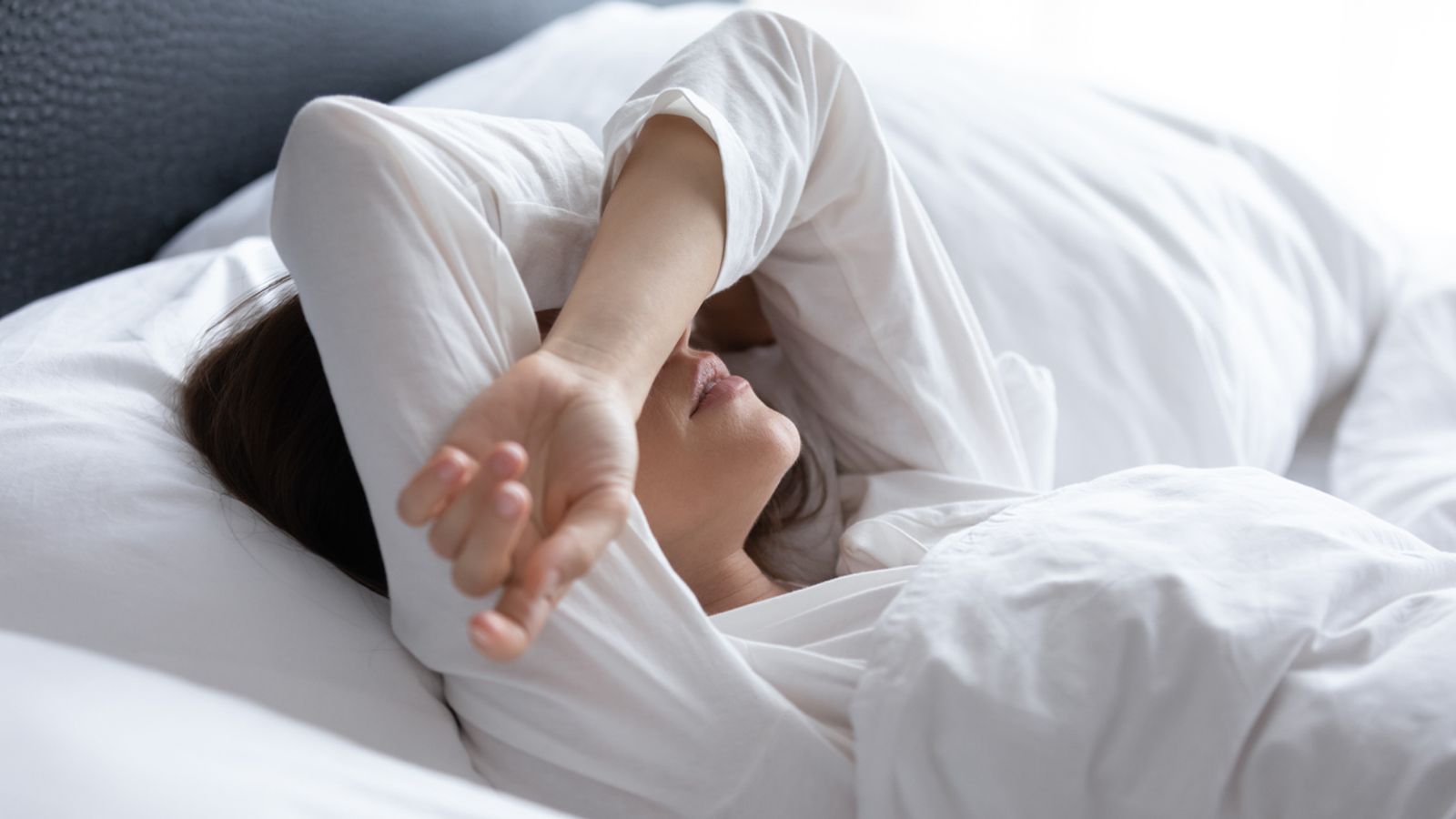It’s the summer holidays – when your weeks are a mixture of late nights, day trips and events – coupled with back-to-work slumps and early wake-up calls.
Social jetlag is the shift in internal body clock – when sleeping patterns change between workdays, weekends and holidays.
Late nights when on holiday and at the weekends can mean a struggle when it’s time to go back to work again and bedtimes need to be sensible for early starts.
The mix can throw body clocks into disarray – and now new research suggests irregular sleep patterns may be linked to harmful bacteria in your gut.
The study, published in The European Journal of Nutrition, is the first to find a link between social jetlag – and poorer diets.
Even a 90-minute difference in the mid-point of sleep – half-way between sleep time and wake-up time – can encourage microbiome (bacteria) that has negative associations with health, the study found.
Previous research has suggested that working shifts disrupts the body clock and can increase risk of weight gain, heart problems and diabetes.
‘No excuse’: NHS health board reprimanded after patient data shared on WhatsApp over 500 times
Just one alcoholic drink a day could raise blood pressure, study finds
Surrey adventure farm park forced to close after E.coli outbreak infects three children
However, even small differences in sleeping habits between work and free days can affect the body’s biological rhythms, according to researchers from King’s College London.
Be the first to get Breaking News
Install the Sky News app for free
Read more:
Just one alcoholic drink a day could raise blood pressure
Eco diet could reduce risk of death from chronic illness by 25%
They assessed a group of 934 people from the ZOE Predict study, the largest ongoing nutritional study of its kind.
The group comprised of mainly lean and healthy individuals with most of them getting more than seven hours sleep throughout the week.
Researchers looked at blood, stool and gut microbiome samples, as well as glucose measurements in people whose sleep was irregular compared to those who had a routine sleep schedule.
Having social jetlag was associated with poor diet quality, higher intakes of sugar-sweetened beverages, and lower intakes of fruits and nuts, according to their findings.
This may directly influence the abundance of specific species of bacteria in the gut, they say. Some are better than others so may positively or negatively affect people’s health.
They found three out of the six microbiota species more abundant in the social jetlag group are linked with poor diet quality, indicators of obesity and cardiometabolic health, like heart attack, stroke, and diabetes, and markers in blood related to higher levels of inflammation and cardiovascular risk.
Dr Sarah Berry, from King’s College London and chief scientist at ZOE, said: “Maintaining regular sleep patterns, so when we go to bed and when we wake each day, is an easily adjustable lifestyle behaviour we can all do, that may impact your health via your gut microbiome for the better.”







